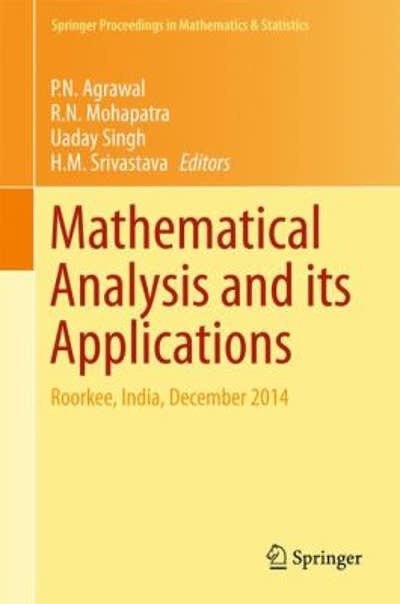Question
female texts underclassman 0 1 0 1 2 0 0 2 0 0 3 0 1 5 0 0 5 0 1 5 1 0
| female | texts | underclassman |
| 0 | 1 | 0 |
| 1 | 2 | 0 |
| 0 | 2 | 0 |
| 0 | 3 | 0 |
| 1 | 5 | 0 |
| 0 | 5 | 0 |
| 1 | 5 | 1 |
| 0 | 5 | 0 |
| 1 | 5 | 0 |
| 1 | 5 | 0 |
| 0 | 5 | 1 |
| 0 | 5 | 0 |
| 0 | 5 | 1 |
| 0 | 7 | 1 |
| 0 | 10 | 1 |
| 0 | 10 | 0 |
| 0 | 10 | 1 |
| 1 | 10 | 1 |
| 1 | 10 | 0 |
| 0 | 10 | 0 |
| 1 | 10 | 1 |
| 0 | 10 | 0 |
| 0 | 10 | 0 |
| 1 | 10 | 0 |
| 0 | 10 | 0 |
| 0 | 10 | 0 |
| 0 | 12 | 0 |
| 1 | 13 | 0 |
| 0 | 15 | 0 |
| 1 | 15 | 0 |
| 1 | 15 | 1 |
| 1 | 15 | 0 |
| 0 | 15 | 1 |
| 1 | 15 | 0 |
| 0 | 15 | 0 |
| 0 | 20 | 0 |
| 1 | 20 | 1 |
| 0 | 20 | 0 |
| 0 | 20 | 1 |
| 0 | 20 | 1 |
| 0 | 20 | 1 |
| 1 | 20 | 0 |
| 1 | 20 | 0 |
| 0 | 20 | 1 |
| 0 | 20 | 0 |
| 1 | 20 | 0 |
| 1 | 20 | 0 |
| 0 | 20 | 0 |
| 0 | 20 | 1 |
| 0 | 25 | 1 |
| 1 | 25 | 1 |
| 0 | 25 | 0 |
| 1 | 30 | 0 |
| 0 | 30 | 0 |
| 0 | 30 | 0 |
| 1 | 30 | 0 |
| 0 | 30 | 0 |
| 0 | 30 | 1 |
| 0 | 30 | 1 |
| 0 | 30 | 1 |
| 1 | 35 | 1 |
| 1 | 40 | 0 |
| 0 | 40 | 0 |
| 1 | 45 | 1 |
| 0 | 50 | 1 |
| 0 | 50 | 1 |
| 0 | 50 | 1 |
| 0 | 50 | 0 |
| 1 | 50 | 1 |
| 1 | 50 | 0 |
| 1 | 50 | 1 |
| 0 | 50 | 1 |
| 0 | 50 | 0 |
| 0 | 50 | 0 |
| 0 | 50 | 1 |
| 0 | 50 | 0 |
| 1 | 50 | 0 |
| 0 | 50 | 0 |
| 0 | 50 | 0 |
| 1 | 52 | 0 |
| 0 | 60 | 1 |
| 1 | 70 | 1 |
| 1 | 100 | 1 |
| 0 | 100 | 0 |
| 1 | 100 | 1 |
| 0 | 100 | 1 |
| 0 | 100 | 1 |
| 0 | 100 | 1 |
| 1 | 150 | 1 |
| 1 | 150 | 0 |
| 0 | 200 | 1 |
| 0 | 200 | 1 |
| 0 | 300 | 1 |
| 1 | 350 | 0 |
The dataset "textmessages.csv" contains variables measured from a survey conducted of Harvard students enrolled in a recent Statistics class:
- female: an indicator variable which is 1 for females and 0 for males;
- underclassman: an indicator variable which takes on the value 1 for a freshman or a sophomore, or 0 for a junior, senior, or a grad student; and
- texts: a variable that measures the number of text messages the respondent says he or she sends in a typical day.
A researcher wants to investigate whether male students send less text messages than female students. All of the below computations must be conducted in R-studio.
a) What is your conclusion about the test used to compare 2 population means (Reject/not reject)?
b) Graphically investigate the assumption of Normality in the "response" variable to compare these groups (attach graphs in pdf file). Report the Anderson-Darling normality "A" test for Male. Report the Anderson-Darling normality "A" test for Female.
c) What is your conclusion about the normality test for both genders (Reject/not reject)?
d)Perform an appropriate transformation to make the Normality assumption more valid. Be sure to include important graphs comparing these 2 groups (graphs to be attached). Report the mean of the transformed variable for Male____________ and Female_______________.
e)Explain briefly your conclusion. Include the effect of gender after transformation on the response variable (if any).
Step by Step Solution
There are 3 Steps involved in it
Step: 1

Get Instant Access to Expert-Tailored Solutions
See step-by-step solutions with expert insights and AI powered tools for academic success
Step: 2

Step: 3

Ace Your Homework with AI
Get the answers you need in no time with our AI-driven, step-by-step assistance
Get Started


